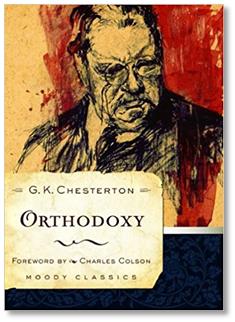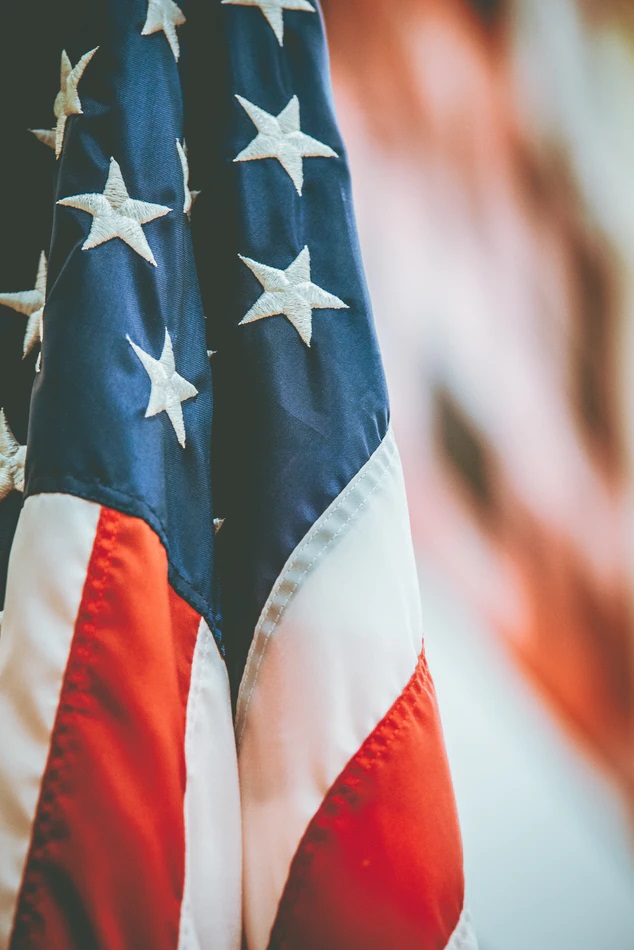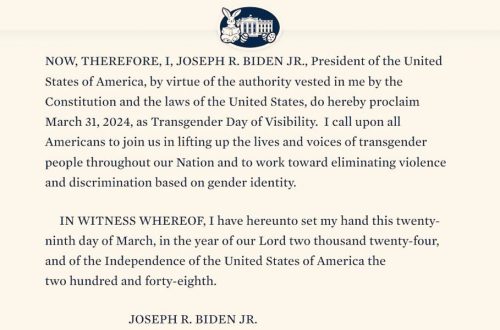 I love G. K. Chesterton’s reflections on what it means to be a Christian patriot. If you have never read it, I encourage you to read “The Flag of the World” in his classic work Orthodoxy. Chesterton contends that love of one’s homeland is not like house-hunting—an experience in which you weigh the pros and cons of a place and choose accordingly. He writes:
I love G. K. Chesterton’s reflections on what it means to be a Christian patriot. If you have never read it, I encourage you to read “The Flag of the World” in his classic work Orthodoxy. Chesterton contends that love of one’s homeland is not like house-hunting—an experience in which you weigh the pros and cons of a place and choose accordingly. He writes:
A man belongs to this world before he begins to ask if it is nice to belong to it. He has fought for the flag, and often won heroic victories for the flag long before he has ever enlisted. To put shortly what seems the essential matter, he has a loyalty long before he has any admiration.
We do not choose our homeland. It is something that we are born into. Thus our acceptance of our home is not like a house that we can leave when we tire of it. It is like the love we have for our family:
It is the fortress of our family, with the flag flying on the turret, and the more miserable it is the less we should leave it. The point is not that this world is too sad to love or too glad not to love; the point is that when you do love a thing, its gladness is a reason for loving it, and its sadness a reason for loving it more.
Love for family is not based on what is deserved. It is a loyalty that precedes any prior condition. Because love of country is not based on pros and cons—because it is unconditional love—true patriotism means that we must seek the nation’s good and flourishing no matter its condition. This love therefore becomes transformative.
True patriotism motivates reform and improvement because it is realistic about the nation’s shortcomings. A man may love his mother unconditionally, but that love does not mean that he is indifferent to her if she is a drunk. His love moves him to seek her welfare and improvement. His love does not simply affirm her sad condition. In the same way, the patriot loves his home not because she is perfect. He knows that she isn’t. The patriot’s love moves him to work for her welfare and improvement.
If Christian patriots love America as mothers love children, arbitrarily, because it is theirs, America may yet become fairer than Florence. Why? Because that kind of love seeks the nation’s perfection. In Chesterton’s words:
People first paid honour to a spot and afterwards gained glory for it. Men did not love Rome because she was great. She was great because they had loved her.
This kind of patriotism does not close its eyes to the sins that bedevil the nation. One cannot excuse evil simply because it is being committed by the nation that we love and are loyal to. Chesterton says that it is evil to “defend the indefensible.” Such is the anti-patriot, and “he will not wash the world, but whitewash the world.”
The real challenge for the patriot is the same challenge that the Christian faces in his relationship to the world writ large:
One must somehow find a way of loving the world without trusting it; somehow one must love the world without being worldly.
This analogy is instructive, and it reveals an irony that may lead us toward the best kind of patriotism. After all, the Bible tells us that God loves the world while telling us not to.
“For God so loved the world, that He gave His only begotten Son, that whoever believes in Him should not perish, but have eternal life” (John 3:16).
“Do not love the world, nor the things in the world. If anyone loves the world, the love of the Father is not in him” (1 John 2:15).
How can these two expressions be reconciled? They reveal a love for the world that is good and a love for the world that is bad. The evil love is the kind that loves the world for its vices. The good love is that kind that seeks the world’s welfare and transformation.
Likewise, the good love of the world produces the best kind of patriotism—a love for the nation that works for its good and welfare. It’s a love that seeks the nation’s good and transformation even when the nation is wayward—in fact, precisely because she is wayward.
I think patriotism for the Christian will become more difficult in the days ahead. Our nation is wayward in so many ways. In many ways it is becoming more hostile to Christians. For that reason, our calling will be to love a nation that may very well not love us back. Our children may be called to love a nation that makes itself an enemy to the true faith. Nevertheless, the call to love the nation and not its vices endures for us and our children.
This is what Chesterton calls the “mystic patriotism”—the love for nation that is undeserved. It requires a love that is supernatural. Who is adequate for these things?
“Not that we are adequate in ourselves to consider anything as coming from ourselves, but our adequacy is from God, who also made us adequate as servants of a new covenant, not of the letter, but of the Spirit; for the letter kills, but the Spirit gives life” (2 Cor. 3:5-6).
This is the love that has been shed abroad in the hearts of God’s people, and we have been called for such a time as this.




